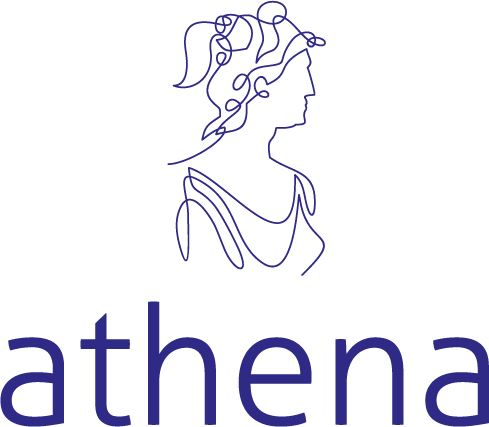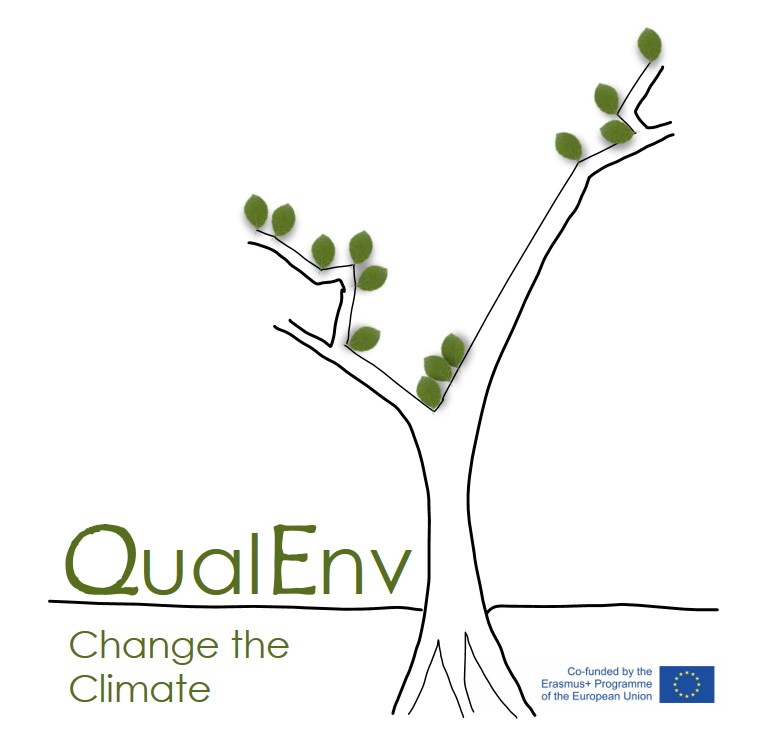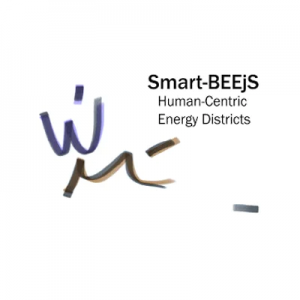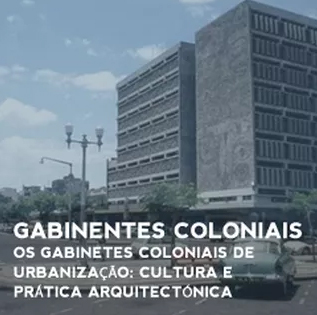University Goes Digital for a Sustainable Global Education
Investigador
O Projeto Athena visa o desenvolvimento de competências digitais dos docentes universitários, reforçando a sua resposta aos desafios que as universidades enfrentam atualmente e no futuro. O projeto procura fomentar ambientes de aprendizagem cooperativa, tornando-os transformadores e inclusivos através da adoção de novas tecnologias, como e-learning, plataformas de jogos, realidade virtual e aumentada, modelados sistematicamente para ativar competências-chave na aprendizagem digital. O projeto irá criar modelos que os docentes podem adotar e adaptar às suas aulas, utilizando diferentes abordagens pedagógicas.
Informação do Projeto
2021-03-01
2023-02-28
Parceiros do Projeto
- IRU-Iscte - Líder
- BRU-Iscte
- ISTAR-Iscte
- CIES-Iscte
- DINAMIA'CET-Iscte
- Webwise Inovação Lda (webwise Inovação Lda) - (Portugal)
- Université Gustave Eiffel (Université Gustave Eiffel) - (França)
- Politecnico di Milano (Polimi) - (Itália)
- SIGMUND FREUD PRIVATUNIVERSITAT WIEN GMBH (SIGMUND FREUD PRIVATUNIVERSITAT WIEN GMBH) - (Áustria)
Oferta de habitação sustentável e acessível na Europa
Investigador
RE-DWELL (2020-2024) will train a new generation of professionals with the transdisciplinary skills which are needed to address the urgent need of affordable and sustainable housing, a major challenge for European societies. To date, affordability and sustainability of housing have been addressed separately, from various disciplinary perspectives (e.g. architecture and planning, economics, sociology) and realms (e.g. policy-making, sustainable development, urban planning, green building). However, recent research indicate that it is necessary to consider the affordability and the sustainability of housing as complementary and interrelated aspects which need to be addressed with a transdisciplinary approach, by combining academic disciplines and engaging non-academic sectors in a common production of knowledge. Ten academic beneficiaries and twelve non-academic partner organisations will jointly contribute to creating a transdisciplinary research environment which encompasses the various disciplines, sectors and stakeholders involved in the provision of A&S housing. Fifteen ESRs research works will interlink three key areas underpinning affordable and sustainable housing: 1. Design, planning and building; 2. Community participation; and 3. Policy and financing. ESRs trained in this programme will be able to develop a capacity to operate across fields and sectors, to provide innovative solutions to the growing housing problem affecting our societies.
Informação do Projeto
2020-10-01
2024-09-30
Parceiros do Projeto
- ISTAR-Iscte
- DINAMIA'CET-Iscte (CT) - Líder
- FUNITEC - Líder (Espanha)
- UGA - (França)
- UFSD - (Reino Unido)
- Universidade de Zagreb - Faculdade de Direito - (Croácia)
- MTATK - (Hungria)
- University of Cyprus - (Chipre)
- UPA - (Espanha)
- Delft - (Países Baixos (Holanda))
- UREAD - (Reino Unido)
Change the Climate: Assuring the Quality of Environmental Strategies in Latin-American Higher Education
Coordenador Global
Population growth, increased prosperity and rapid urbanization are bringing global demand for natural resources to a point increasingly beyond the Earth’s carrying capacity. Together with climate change, those pressures are causing significant environmental degradation in many parts of the planet. Latin America is particularly vulnerable. The United Nations Sustainable Development Goals (SDGs) constitute urgent calls and drivers for higher education to be part of future generations of engaged citizens aware of their role in creating fair and healthy societies.
The Change the Climate project addresses three main needs: environmental management at all levels of higher education activities, integration of environmental management with sustainability strategies and institutional quality management, and customized strategies for sustainability in education. The project’s main goal is to increase Latin-American University’s contribution to Sustainable Development, through the implementation of environmental systematic practices and quality processes in alignment with the UN SDGs, improving the management and operations of higher education institutions.
The project will deliver tools and guides for environmental impact analysis and SDGs mapping in campus operations and educational activities. An environmental management system will be implemented in each partner university decreasing their environmental impact; sustainability awareness will be assessed thoughout the academic communities; strategies for sustainability in higher education will be developed for curricula improvement; and a common open online course on sustainability will be created in English, Spanish and Portuguese.
The project’s impact will reach stakeholders beyond the project partnership at local, regional and national levels contributing to behavioural change for sustainable futures.
Informação do Projeto
2020-01-15
2023-07-14
Parceiros do Projeto
- ISTAR-Iscte (DLS) - Líder
- BRU-Iscte (Economia)
- BRU-Iscte (M&M)
- BRU-Iscte (Economia) - Líder
- PUCRS - Coordenador Técnico (Brasil)
- Universidad del Norte - (Colômbia)
- UCR - (Costa Rica)
- UNA - (Costa Rica)
- ULima - (Peru)
- UNISABANA - (Colômbia)
- UP - (Peru)
- UDG - (México)
- BUAP - (México)
- UFSC - (Brasil)
- UNISUL - (Brasil)
- POLITO - (Itália)
- GU - (Suécia)
- SULITEST - (França)
University Community Engagement in Technologies for Sustainability: a Social Architecture.
Investigador
O objetivo do financiamento por parte da Fundação Calouste Gulbenkian é fomentar a alteração dos comportamentos dos utilizadores do campus do ISCTE-IUL para reduzir o consumo de energia e melhorar a sustentabilidade ambiental do campus. Irá conjugar conhecimentos da Psicologia, Engenharia, Arquitetura e Informática, envolvendo toda a comunidade ISCTE-IUL e serão implementadas estratégias IoT, de economia comportamental e gamificação com a ligação aos modelos BIM.
O projeto desenvolve-se ao longo de 4 fases sequenciais:
1ª fase: Diagnóstico da situação atual: a. Análise da perceção da comunidade ISCTE-IUL em matéria de sustentabilidade ambiental; b. Instalação de sensores com vista à medição dos comportamentos energéticos dos utentes do ISCTEIUL (e.g. temperatura, humidade, luminosidade, ruído e consumo de energia).
Objetivos:
1) Diagnóstico da perceção da comunidade baseado em inquéritos à população alvo. Feedback recebido irá servir para identificar os principais requisitos e aproximações da nossa plataforma. Indicadores – Relatório com variáveis, recolha e análise de dados. Metas – Avaliar uma amostra representativa de pessoal não docente, docente, estudantes e visitantes.
2) Recolha em tempo real de dados de sensores e respetiva análise em plataforma de IoT para identificação de padrões e comportamentos. Indicadores – leitura dados em tempo real identificação padrões. Relatórios semanais, mensais, anuais. Informação em tempo real em dispositivos móveis. Metas – instalação de medições em 20 locais (leitura energia, qualidade ar, luminosidade, temperatura, ruído).
2ªfase: Definição de objetivos para a redução do consumo energético, tendo em conta o baseline quantitativo e qualitativo construído na 1ª fase do projeto relacionado com o cálculo da pegada ecológica (consumos) por indivíduo, sala, departamento, edifício. Indicadores – métricas de consumos por pessoa, sala, departamento e edifício. Análise de comportamentos e respetiva quantificação
Metas ...
Informação do Projeto
2019-04-01
2021-03-31
Parceiros do Projeto
- ISTAR-Iscte (SSE) - Líder
- BRU-Iscte
- CIS-Iscte
Human-Centric Energy Districts: Smart Value Generation by Building Efficiency and Energy Justice for Sustainable Living
Investigador
The EU has used the Strategic Energy Technology Plan to transfer power to consumers, by decentralising the energy ecosystem by establishing “100 positive energy districts by 2025 and 80% of electricity consumption to be managed by consumers in 4 out of 5 households”. The SMART-BEEjS recognises that this requires the systemic synergy of the different stakeholders, balancing attention towards technological and policy oriented drivers, citizens and society needs, providers and technology capabilities and value generation system synergies in order to deliver the transition without leaving large parts of the population behind. Smart-BEEjS covers all angles of this eco-system, to train a generation of transformative and influential champions in policy design, techno-economic planning and business model innovation in the energy and efficiency sectors, mindful of the personal and social dimensions, as well as the nexus of interrelation between stakeholders in energy generation, efficiency and management.
Informação do Projeto
2019-04-01
2023-03-31
Parceiros do Projeto
- CIS-Iscte (PsyChange)
- TNTU - Líder (Reino Unido)
- Eurac Research - (Itália)
- TU WIEN - (Áustria)
- ITC - (Espanha)
- UNIVERSITAT BASEL - (Suíça)
- WU - (Países Baixos (Holanda))
- RWI - (Alemanha)
A global multidisciplinary network on housing research and learning.
Investigador
The objetive of OIKONET -the OIKODOMOS Network- is to create a platform of collaboration to study contemporary housing from a multidisciplinary and global perspetive by encompassing the multiple dimensions which condition the forms of dwelling in today’s societies: architectural, urban, environmental, economic, cultural and social.
The consolidated OIKODOMOS Virtual Campus (www.oikodomos.org) will grow into a network by: 1. Incorporating other disciplines to the study of contemporary housing, such as economics, social studies and historical preservation; 2. Including social and community organizations in the design and implementation of learning activities; 3. Addressing the global dimension of housing research, with the participation on non-European partners; 4. Expanding the OIKODOMOS Virtual Campus to a larger number of institutions, inside and outside Europe and 5. Enhancing the existing digital platform with new environments which will support the network’s learning activities.
OIKONET will intertwine three areas of activity each one making a subnetwork within the network:
1. Research on housing studies from a multidisciplinary and global approach;
2. Participatory actions to engage communities in the definition, solution and evaluation of housing problems; and
3. Pedagogical activities which bring together different stakeholders, learning environments and disciplines.
The three subnetworks become strongly intertwined through the project activities. Relevant issues on contemporary housing studies discussed by researchers and experts will provide themes to design learning activities; existing problems at the community level will provide study cases to develop design workshops with the participation of academic and non-academic stakeholders; and housing problems will be analyzed in collaboration with local stakeholders. This way, OIKONET will give rise to a new structure which will foster the exchange among research groups and higher education institutio...
Informação do Projeto
2014-10-01
2016-09-30
Parceiros do Projeto
- ISTAR-Iscte (DLS)
- LA SALLE - Líder (Espanha)
Living System (2012)
Investigador
Interactive Architecture is a processes-oriented guide to creating dynamic spaces and objects capable of performing a range of pragmatic and humanistic functions. These complex physical interactions are made possible by the creative fusion of embedded computation (intelligence) with a physical, tangible counterpart (kinetics). A uniquely twenty-first century toolbox and skill set-virtual and physical modeling, sensor technology, CNC fabrication, prototyping, and robotics-necessitates collaboration across many diverse scientific and art-based communities. Interactive Architecture includes contributions from the worlds of architecture, industrial design, computer programming, engineering, and physical computing. These remarkable projects run the gamut in size and complexity. Full-scale built examples include a house in Colorado that programs itself by observing the lifestyle of the inhabitants, and then learns to anticipate and accommodate their needs. Interactive Architecture examines this vanguard movement from all sides, including its sociological and psychological implications as well as its potentially beneficial environmental impact. Interactive Architecture by Michael Fox and Miles Kemp, 2009:20 “If living systems are machines, that they are physical auto poetic machines is trivially obvious: they transform matter into themselves in a manner such that the product of their operation is their own organization. However, we deem the converse as also true: A physical system if autopoetic is living. In other words, we claim that the notion of autopoiesis is necessary and sufficient to characterize the organization of living systems.” Autopoiesis and cognition: the realization of the living by Humberto R. Maturana and Francisco J. Varela, 1979:17. LS_01: Arduino +Grasshopper+Firefly and Prototyping (32 hours) 7th to 11th March 2012, D0.04 Laboratory (ISCTE-IUL, Building II) 7th and 8th March 2012 (Wednesday and Thursday) 18:30 -22:30 (4 hours) Trainers: Brimet Silva e...
Informação do Projeto
2012-01-01
2018-12-31
Parceiros do Projeto
- ISTAR-Iscte (DLS)
- DINAMIA'CET-Iscte
- Vitruvius FABLAB-IUL - (Portugal)
- FabLab EDP - (Portugal)
- Rhino 3D Portugal - (Portugal)
Avaliação e diagnóstico das necessidades de intervenção em edifícios nos bairros do Condado e dos Lóios em Marvila
Investigador
A investigação centra-se da "Avaliação e Diagnóstico das Necessidades de Intervenção nos Bairros do Condado e dos Lóios em Marvila”. Estes bairros conhecidos por “Zona J” e “Pantera Cor-de-rosa” foram projetados e construídos nas décadas de 70 e 80 do século XX, incluem um conjunto de lotes num total de 1500 unidades de ocupação e situam-se em Marvila (Chelas), na zona oriental da cidade de Lisboa. Tratando-se de bairros de habitação social, a população residente é constituída maioritariamente por indivíduos com baixos recursos, famílias numerosas, idosos e desempregados. O edificado encontra-se num avançado estado de degradação e desajustado em relação às normas regulamentares mais recentes. Os objetivos são: dotar o Programa Viver Marvila de um documento que sirva de suporte às intervenções no edificado tendo em consideração as problemáticas específicas de cada lote ou conjunto de lotes; apresentar propostas técnicas e financeiras sustentáveis; otimizar os aspetos relacionados com o bom desempenho funcional das construções e com a segurança nas suas várias vertentes; assegurar a sustentabilidade e durabilidade de futuras intervenções a efetuar; reduzir e controlar os custos de manutenção durante a vida útil do edifício em termos funcionais e energéticos. Procurámos responder a um conjunto de questões que se prendem com as soluções tipológicas e construtivas contemporâneas atendendo às atuais normas regulamentares da edificação, às necessidades reais de quem lá habita e aos pressupostos de qualidade dos projetos originais. Foram desenvolvidas um conjunto das etapas: o levantamento, a caracterização e o diagnóstico dos conjuntos edificados, os cenários de intervenção sustentados pelas análises complementares das especialidades, (estruturas, segurança, eficiência energética, conforto térmico e gestão). As respostas às questões levantadas, decorrem de propostas concretas de reorganização espacial a partir do edificado, suportadas por análises técnicas e financeiras ...
Informação do Projeto
2010-05-10
2011-03-22
Parceiros do Projeto
Os Gabinetes Coloniais de Urbanização: Cultura e Prática Arquitectónica
Investigador
Este estudo teve como objetivo inventariar, catalogar e analisar o trabalho de Equipas sucessivas que pertenciam às estruturas dos Ministérios das Colónias e mais tarde do Ultramar (doravante designados ministérios no exterior) e que eram responsáveis pelo projeto arquitetónico faz parte de uma abordagem mais abrangente estudar sobre a cidade e a arquitetura produzida nos antigos territórios coloniais, cujo objetivo é promover o conhecimento do património intelectual e construído gerado pelos portugueses e disponibilizá-lo ao público em geral por meio de um sistema de consulta online .
Informação do Projeto
2010-02-01
2013-07-31
Parceiros do Projeto
- DINAMIA'CET-Iscte
- IICT - (Portugal)
- IHRU - (Portugal)

 English
English





